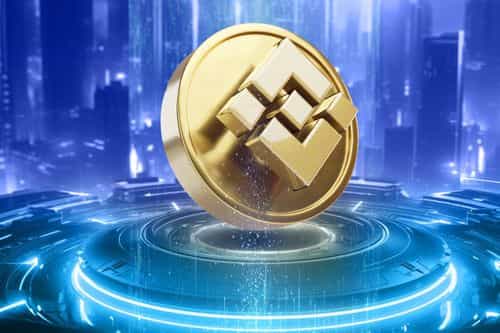Is Metamask safe under new crypto laws?


As the cryptocurrency landscape continues to grow and evolve, regulatory changes are becoming more frequent. With these changes come important questions about the safety of using popular Web3 tools like MetaMask. MetaMask, a widely-used non-custodial wallet, allows users to interact with decentralized finance (DeFi) platforms and manage their digital assets securely. However, with the introduction of new crypto security policies globally, many crypto users are asking: Is MetaMask still safe to use? In this article, we’ll explore how MetaMask stands up to the latest crypto regulations, what these changes mean for its security, and how users can ensure their digital assets remain safe.
What is MetaMask and how does it work?
MetaMask is a popular Web3 wallet that allows users to keep, send, and receive cryptocurrencies like Ethereum (ETH) and all the EVM tokens besides supporting non-EVMs like Solana tokens With Metamask Solana snap. As a non-custodial wallet, MetaMask puts the control of private keys and assets entirely in the hands of the user, making it a preferred choice for anyone looking to engage with DeFi platforms, smart contracts, and blockchain applications. MetaMask is integral to Web3 security, providing access to decentralized exchanges (DEXs), decentralized applications (dApps), and cross-chain bridges, offering a user-friendly interface for managing digital assets.
How do new crypto laws affect MetaMask?
With the increasing popularity of cryptocurrencies, governments and regulatory bodies worldwide are introducing crypto security policies aimed at protecting users, reducing fraud, and preventing illicit activities such as money laundering and terrorism financing. These policies primarily target centralized exchanges (CEXs) and other custodial platforms, but there is growing interest in how they might affect decentralized platforms and tools like MetaMask.
Key crypto security regulations include:
Is MetaMask safe? Here's how it protects your assets:
Metmask is one of the long-standing safe cryptocurrency wallets that is secure by nature even amid pressures from crypto probable regulation and laws, these are the main factors:
1. Non-Custodial nature
MetaMask operates as a non-custodial wallet, meaning it does not store your private keys, recovery phrases, or sensitive information on centralized servers. As a result, MetaMask cannot access or control your assets. This design ensures that you, the user, remain in full control of your funds—an essential aspect of Web3 security. In light of the new crypto laws, MetaMask’s non-custodial nature remains a key advantage. Since MetaMask does not store user data, it isn’t directly impacted by KYC/AML requirements, as opposed to centralized platforms that may collect personal information and transaction histories.
2. Enhanced security with hardware wallet integration
To further protect users, MetaMask integrates seamlessly with hardware wallets like Ledger and Trezor. These wallets store private keys offline, making them much harder to hack. This hardware integration provides an additional layer of security for users who wish to keep their assets safe from potential threats.
3. Encryption and seed phrase protection
MetaMask encrypts your private keys locally on your device and protects them using your password. Furthermore, the seed phrase (which acts as a backup for recovering your wallet) is never stored on MetaMask’s servers, ensuring your wallet remains secure even in the event of a breach. Regularly backing up and securely storing your seed phrase is essential for safeguarding your crypto assets.
4. No need for KYC
MetaMask does not require KYC verification, which is in line with the decentralized nature of Web3 and DeFi. This means you can use your MetaMask wallet without needing to provide personal identification, unlike centralized exchanges that must comply with KYC laws. However, the decentralized applications you interact with through MetaMask may request identity verification depending on their services and the regulatory requirements in place.
How are Decentralized Applications (dApps) impacted by crypto laws?
While MetaMask remains secure under the new laws, users need to be mindful of how decentralized applications (dApps) interact with these regulations. Some DeFi platforms may be required to implement KYC and AML procedures, especially if they involve significant financial transactions or offer lending/borrowing services. These services may ask for personal details, impacting the privacy of your crypto activities.
Steps to ensure MetaMask security under new laws:
To ensure your digital assets remain safe while using MetaMask, consider the following best practices:
Conclusion: Is MetaMask still safe to use under new crypto laws?
MetaMask remains a secure wallet option, even with the introduction of new crypto security policies. Its non-custodial nature ensures that your private keys and crypto tokens remain under your control, reducing the risks associated with centralized platforms. While some dApps and DeFi protocols you interact with through MetaMask may require KYC or other regulatory compliance, MetaMask itself continues to be a safe tool for managing your cryptocurrency assets. By following best security practices and staying informed about the evolving crypto regulations, you can confidently use MetaMask to interact with the decentralized Web3 ecosystem, knowing that your funds and data are secure. More tips on securing your crypto assets; learn how to stay safe and master web3 security.
Frequently asked questions
Check out most commonly asked questions, addressed based on community needs. Can't find what you are looking for?
Contact us, our friendly support helps!
How does MetaMask enable access to DeFi apps?
MetaMask is a portal to the decentralized ecosystem by providing a user-friendly interface that allows quick and secure interactions with various DeFi platforms and dApps, enabling safe asset management and transactions.
What distinguishes MetaMask compared to other wallets?
MetaMask is favored for its non-custodial design, which ensures users have full control over their private keys, along with strong local encryption and the ability to integrate hardware wallets for enhanced security.
Does MetaMask support cross-chain transactions and non-EVM tokens?
MetaMask has gone beyond Ethereum by integrating features like the Solana snap, enabling users to manage non-EVM tokens and engage in cross-chain transactions within a single interface.




